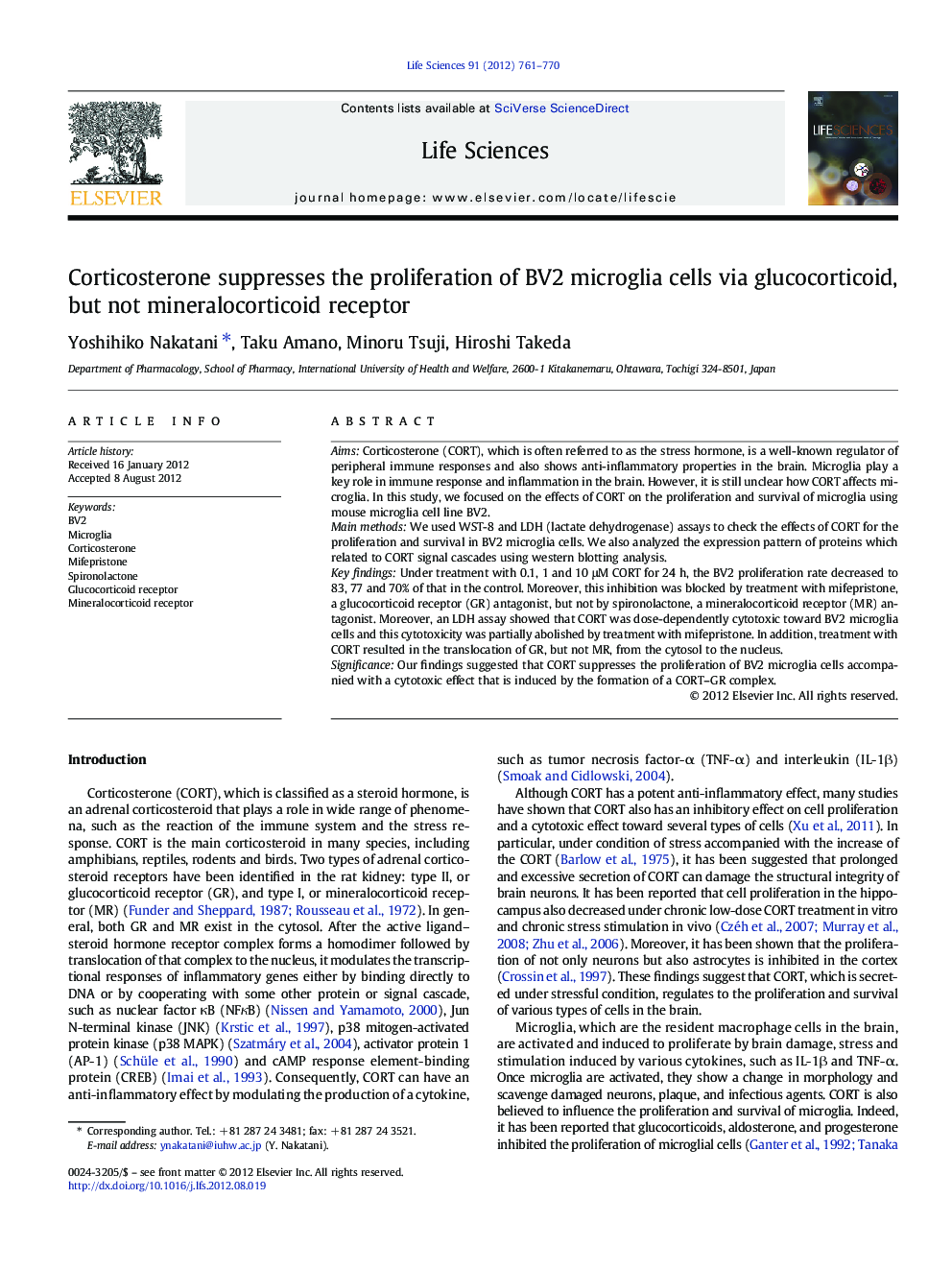| Article ID | Journal | Published Year | Pages | File Type |
|---|---|---|---|---|
| 2551563 | Life Sciences | 2012 | 10 Pages |
AimsCorticosterone (CORT), which is often referred to as the stress hormone, is a well-known regulator of peripheral immune responses and also shows anti-inflammatory properties in the brain. Microglia play a key role in immune response and inflammation in the brain. However, it is still unclear how CORT affects microglia. In this study, we focused on the effects of CORT on the proliferation and survival of microglia using mouse microglia cell line BV2.Main methodsWe used WST-8 and LDH (lactate dehydrogenase) assays to check the effects of CORT for the proliferation and survival in BV2 microglia cells. We also analyzed the expression pattern of proteins which related to CORT signal cascades using western blotting analysis.Key findingsUnder treatment with 0.1, 1 and 10 μM CORT for 24 h, the BV2 proliferation rate decreased to 83, 77 and 70% of that in the control. Moreover, this inhibition was blocked by treatment with mifepristone, a glucocorticoid receptor (GR) antagonist, but not by spironolactone, a mineralocorticoid receptor (MR) antagonist. Moreover, an LDH assay showed that CORT was dose-dependently cytotoxic toward BV2 microglia cells and this cytotoxicity was partially abolished by treatment with mifepristone. In addition, treatment with CORT resulted in the translocation of GR, but not MR, from the cytosol to the nucleus.SignificanceOur findings suggested that CORT suppresses the proliferation of BV2 microglia cells accompanied with a cytotoxic effect that is induced by the formation of a CORT–GR complex.
